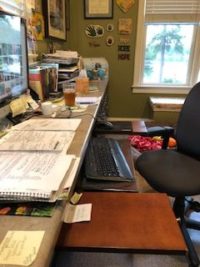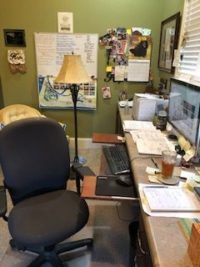|
|
TOP SPONSOR

You’re working hard for success.
We’ll help you be ready for when you find it.
Most people learn the business side of their passion by failing—a lot. It can cost you time, money, stress, and lead to total burnout. Learning how to run your business isn't complicated. You just need to know where to start.
Our team of professional freelancers created a guide to teach you the ins and outs of managing your freelance business. Our free mini course on Freelance Management will help you analyze your finances, reach new clients, plan for growth, and more.
Running your business doesn’t have to mean running yourself ragged. Try our free course today, and start running your business like a pro.
Click Here
EDITOR'S THOUGHTS
ON WRITING
I'm not a big audiobook listener. As a fast reader, I can race through print so much faster. However, with a few credits on Audible, I decided to give Stephen King's On Writing a reread, so to speak.
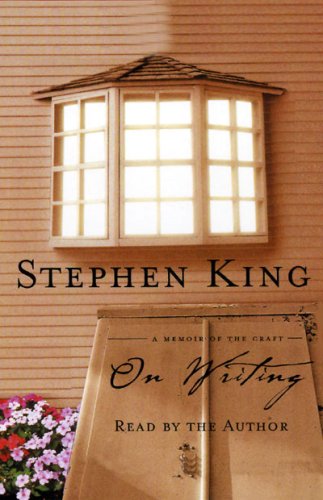
I'd forgotten how good that book was.
King gives you permission to be a writer without instilling false hope or the make-believe fantasy that you will be a million-book seller. What he teaches instead is to love the effort, energy, and creativity of writing without the constant nagging of how to publish and make a buck. Because without wanting to create the art first and foremost, and be legitimate in its purity, it won't get far.
He teaches you how to prioritize how you become a writer.
We should write daily, he says (hah, I've said that since I first put pen to paper). Consider 1,000 words a day (my current habit). We should learn grammar. We should read, and read a lot. We should not write unless we attempt to be well-read.
I felt like I'd come home to an old favorite teacher who I trusted to tell me what I needed to hear, giving me hope while keeping my feet grounded in reality. None of the flashy how-to-become-a-bestseller propaganda. It felt so clean and honest. Through his life, through his choices in living, through the people who'd crossed his path, he began creating fiction that had one toe in the water of his realities. He teaches us to look at the life we've been given, and make something
of it in our words.
Someone recently discounted the book, a younger person who claimed not to see the hoopla in the book. Younger, meaning the book was written when this guy was maybe twelve. I tried to discuss about how each writer is different and that most writers can find something quite useful in the book. I was laughed at. I ceased the discussion. I felt sorry for this guy.
Listen, you may not like horror (which isn't all that King writes), but nobody can argue that the man doesn't know his craft. Just look at his books. Just look at his movies. Just take a moment and dissect one of his stories for educational purposes only. He gets writing.

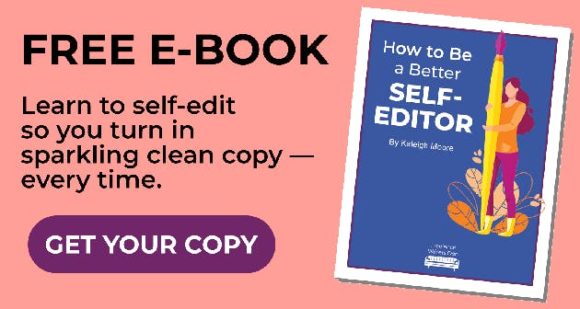
SUPER SPONSOR

How to Nail Your Novel Vision With One Good Idea
There are so many steps in writing a novel:
research, characters, worldbuilding, plot, writing, editing, polishing.
There’s so much hard work involved.
We know. We’ve been there.
That’s why we at Litwise had one good idea:
To bring together everything you need to write a novel to one place.
One online tool to rule all your writing needs,
from research to characters and worldbuilding to versions and backups.
This is the future of writing a novel, and we’re building it now.
Follow us to nail your novel vision.
https://bestwritingsoftware.com
HOPE'S APPEARANCES
|
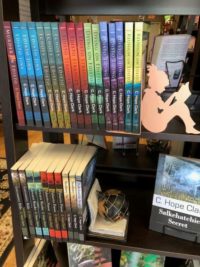
|
- October 7, 2021 - Edisto Bookstore, Edisto Island, SC - 3-5PM
- November 6, 2021 - Dorchester County Library, St George, SC - "Turning Your Ideas Into Story"
- Email: hope@chopeclark.com to schedule events, online or otherwise. There's starting to be life out there!
|
SUCCESS QUOTE
It always seems impossible until it is done.
~Nelson Mandela
SUccess Story
If you have a success story you believe was prompted by FundsforWriters, please share with us! Send to hope@chopeclark.com
Featured article
Sensitivity Reading as a Business
By Kathy L. Brown
Crave a change-of-pace that pays you and helps your fellow authors produce high-quality narratives? As a member of a marginalized community, consider sensitivity reading for that marginalization. A sensitivity reader "reviews unpublished manuscripts to spot cultural inaccuracy, representation issues, bias, stereotypes, or problematic language." (Reedsy) The ranks of sensitivity readers include beta readers,
writers, and editors, and their clients may be authors or publishers. Several professional sensitivity readers recently offered us some advice via electronic interview.
Crystal Shelley of Rabbit with a Red Pen Editorial Services helps authors depict Chinese culture and Asian American experiences. Effective sensitivity reading goes beyond your cultural view of the book. "It can require much more in-depth work and reflection. We must know the limitations of what perspectives we can offer, as well as what we are or are not willing to read."

Jenna Fischtrom Beacom assists with portrayal of deaf characters and culture. "It can be hard to be as honest as necessary, but my job is to give writers and editors the information they need to make their representation as authentic as possible."
Importance of Sensitivity Reading
The sensitivity reader's help can be as simple as ensuring non-English words are used correctly, as Crystal has done, to more complicated issues. "Deaf characters are often written as being able to easily and effectively lipread," Jenna says. "This widespread misconception leads to situations in which a deaf person is unable to communicate, such as when a doctor or hospital doesn't want to pay for an American Sign Language interpreter; they think the
deaf person should just be able to lipread. Inauthentic representation can have serious real-life consequences."
Good communication with the author is key. Crystal explains, "If we're unable to communicate in a way that allows the writer to make actionable changes, our feedback and suggestions will likely be ignored."
Writers want help with the "lived experience in a given marginalization." Jenna believes "Nobody should offer a sensitivity reading for something that is outside of their own lived experience." And while no group is a monolith—all members in agreement on every issue—have "your finger on that pulse" of your community, so the feedback you offer is as complete and helpful as you can make it.
Practical Steps to Start Your Business
So, you have the lived experience and motivation to help writers. What's next? Update your social media profiles and reach out to various editorial databases, associations, publishers, and websites. A few examples: Writing Diversely, Fiverr, Writing The Other: a Facebook Group, and the National Association of Independent Writers And
Editors. Your own website, of course, should sell your sensitivity reading services.
Email and phone/Zoom calls are sufficient for most business transactions. Signing a short contract or letter of agreement to your service terms and conditions is good business practice. Sensitivity readers provide the client a comprehensive report and manuscript comments; they may discuss their assessment with the client routinely or as requested.
And, of course, get paid! You're offering a valuable service and may find yourself reading material that demonstrates harmful attitudes or even describes personally triggering events. As Jenna says, "My job is to get past this and still offer a kind, professional report, but that's part of what makes it a job." The Editorial Freelancers Association (EFA) provides industry-standard rates, although these may vary in actual
practice. EFA cites $0.01 to $0.019 per word as average. Bear in mind the sensitivity reader need not provide proofreading or line editing unless specifically hired for those tasks. A webinar and a booklet on becoming a sensitivity reader are available the EFA's website.

Sensitivity reading is hard, but rewarding, work. You'll need finely honed communication skills, diplomacy, and, at times, a thick skin. But it is a great way to make a positive impact on the publishing industry and mentor your fellow authors who want authentic representation of all the characters in their work.
Bio:
Speculative Fiction with a Historical Twist! Kathy lives and writes in St. Louis, Missouri, USA. Her hometown and its history inspire much of her fiction. When she's not thinking about how haunted everything is, she enjoys hiking, crafts, and cooking for her family. Her first novel, The Big Cinch, will be published by Montag Press in 2021. She has three novellas available: Wolfhearted, The Resurrectionist, and Water of Life. Her blog and other
musings live at kathylbrown.com, and she lurks on the usual social media platforms.
8535469 © Walex101 | Dreamstime.com
COmpetitions
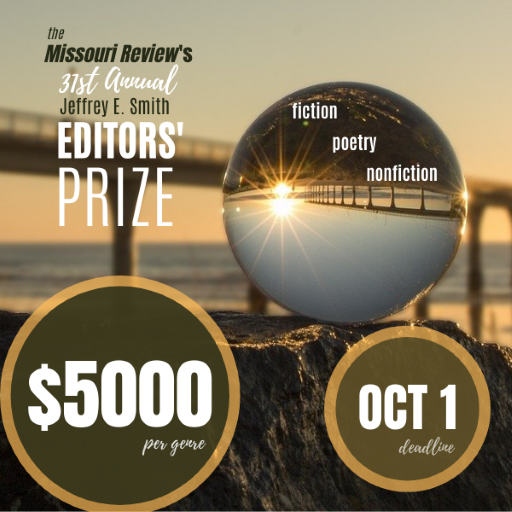
The Missouri Review invites entries to the 31st annual Jeffrey E. Smith Editors' Prize in fiction, poetry, and nonfiction.
Winners receive $5000, publication, and promotion. All entries considered for publication.
Each entrant at the $25 level will receive a 1-year digital subscription and a free digital copy of the latest anthology from Missouri Review Books, Private Lives. Entrants at the $30 level will additionally receive access to the last decade of digital issues, including audio recordings of the features from those issues.
Deadline: October 1. Learn more at our website.
- - - -
THE 2021 BREAKOUT WRITERS PRIZE
https://www.authorsguild.org/the-breakout-8/
$10 ENTRY FEE. Deadline November 1, 2021. The Fourth Annual Breakout Writers Prize brings visibility to the creators of our future by honoring and supporting outstanding college and graduate student writers. Four writers, two in prose and two in poetry, each will receive publication in the fall/winter 2021 Breakout issue of Epiphany; a $1,000 prize, a year-long mentorship, including an additional short manuscript review, with Epiphany's editor-in-chief Rachel Lyon, a one-year
membership with the Authors Guild, and a one-year subscription to Epiphany. Prose manuscripts may consist of one short story, a novel excerpt, or a work of creative nonfiction, not to exceed 5,000 words. Poetry manuscripts may include up to five poems.
F(r)ICTION CONTEST
https://frictioncontests.submittable.com/submit
$10-$15 ENTRY FEE. Deadline October 30, 2021. Categories short story, flash fiction, and poetry. Short stories: 1,001 – 7,500 words. Flash fiction: up to 1,000 words per piece. Poetry: up the three pages per poem. We accept work, written in English, from anywhere in the world. Writers over the age of 13 are welcome to submit. First prize for short story is $1,000. First prize for flash fiction is $300. First prize for poetry is $300.
RIVER TEETH LITERARY NONFICTION BOOK PRIZE
https://www.riverteethjournal.com/contests
$27 ENTRY FEE. Deadline October 31, 2021. Manuscripts must be in English, double-spaced, and between 35K-85K words long (approximately 150-350 pages). The winner will receive book publication with The University of New Mexico Press and a $1,000 honorarium. Submission should be previously unpublished as a complete book (it’s fine if excerpts or individual essays have appeared in literary journals or magazines). Any literary nonfiction (including memoir, personal essays, investigative
reporting, et cetera) is eligible.
LEXI RUDNITSKY FIRST BOOK PRIZE
https://www.perseabooks.com/lexi-rudnitsky-prize-award/
$30 ENTRY FEE. Deadline October 31, 2021. The Lexi Rudnitsky First Book Prize competition is open to self-identifying women who have yet to publish a full-length book of poems. The winner receives publication, an advance of $1,000, and publication of her collection by Persea. In addition, the winner receives the option of an all-expenses-paid residency at the Civitella Ranieri Center, a renowned artists retreat housed in a fifteenth-century castle in Umbertide, Italy. Submissions should be
at least 40 pages of poetry, which must be primarily in English.
LEXI RUDNITSKY EDITOR'S CHOICE AWARD
https://www.perseabooks.com/lexi-rudnitsky-prize-award/
$30 ENTRY FEE. Deadline March 7, 2021. Open to any poet who has previously published at least one full-length book of poems. The winner receives an advance of $2,000, publication of their collection by Persea. Entrants must be US Citizens and currently residing in the United States. Submissions should be at least 40 pages of poetry, which must be primarily in English.
APR/HONICKMAN FIRST BOOK PRIZE
https://americanpoetryreview.submittable.com/submit/2170/apr-honickman-first-book-prize
$25 ENTRY FEE. Deadline October 31, 2021. The prize of $3,000, with an introduction by the judge and distribution of the winning book by Copper Canyon Press through Consortium, will be awarded in 2022 with publication of the book in the same year. The author will receive a standard book publishing contract, with royalties paid in addition to the $3,000 prize. The prize is open to poets who have not published a book-length collection of poems with a registered ISBN. Poems previously
published in journals or limited-edition chapbooks may be included in the manuscript.
INDIANA REVIEW CREATIVE NONFICTION PRIZE
https://indianareview.org/prizes/creative-nonfiction-prize/
$20 ENTRY FEE. Deadline October 31, 2021. Send us one creative nonfiction piece, up to 5,000 words, for a chance at $1,000 and publication.
PURITAN LITERARY PRIZE
http://puritan-magazine.com/writing-contest/
$20 ENTRY FEE. Deadline October 15, 2021. No works over 7,500 words or under 1,000 will be accepted or read. Each submission to the poetry contest can include up to four poems, or up to four pages (whichever comes first). We welcome multiple entries in either genre. First prizes in fiction and poetry are each $1,000. Runners-up receive $200.
GRANTS / FELLOWSHIPS / CROWDFUNDING
WRITING SECRETS OF THE WORLD'S MOST PROLIFIC AUTHORS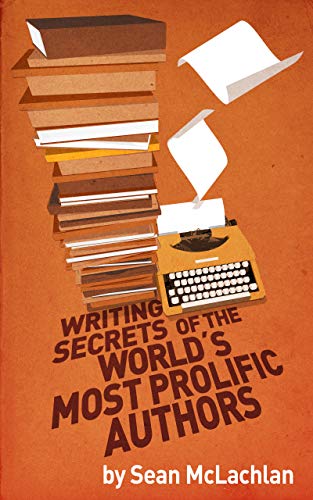
What does it take to write 100 books?
hat about 500? Or 1,000?
That may sound like an impossibly high number, but it isn't. Some of the world's most successful authors wrote hundreds of books over the course of highly lucrative careers.
Isaac Asimov wrote more than 300 books. Enid Blyton wrote more than 800. Legendary Western writer Lauren Bosworth Paine wrote close to 1,000.
Some wrote even more.
This book examines the techniques and daily habits of more than a dozen of these remarkable writers to show how anyone with the right mindset can massively increase their word count without sacrificing quality. Learn the secrets of working on several projects simultaneously, of reducing the time needed for each book, and how to build the work ethic you need to become more prolific than you ever thought possible.
Amazon
Amazon UK
Apple
Scribd
Kobo
Barnes & Noble
= = =
ARTS COUNCIL OF NORTHERN IRELAND
http://artscouncil-ni.org/news/5million-recovery-fund-to-support-individuals-in-the-arts-creative-sectors
Deadline October 6, 2021. The Creative Individuals Recovery Programme (CIRP), worth £5 million from the Department for Communities, offers individuals the opportunity to apply for grants of up to £2,000 each. CIRP funding aims to support one-off costs that are incurred by individuals working within the creative economy, helping them to re-engage with, or maintain their creative practice. Funding should help individuals and artists sustain and build the professional and
technical skills, which are so important to the entire creative ecosystem.
DEERING ESTATE
https://deeringestate.org/arts/artists-in-residence/
Nestled along the coast in South Dade, near Miami, the Deering Estate is a cultural asset and historic site listed on the National Register of Historic Places. Non-local, traveling, out-of-state, and international artists are welcome to apply and participate in either our project or studio residencies but must find their own local accommodations, transport, and funding for supplies and expenses. Artists-in-Residence receive studio space through a competitive application process where they
can pursue personal artistic projects in the visual, literary, and performing arts. Artists have access to shared meeting spaces, outdoor screened enclosures, outdoor work areas, the theatre, historic library, and can explore the eight distinct habitats with the support of the Naturalist and Interpretive staff.
AUTHOR'S LEAGUE FUND
https://authorsleaguefund.org/apply/
The Authors League Fund has helped professional writers in times of crisis, such as medical and housing emergencies. The Fund provides direct financial aid to help with rent, medical bills, utilities, groceries, and other necessities. The COVID-19 pandemic presented new challenges, as thousands of writers across the US saw a sudden and dramatic loss of income. The Fund continues to hear from writers who are struggling as a result of the pandemic. The Authors League Fund helps authors,
dramatists, journalists, critics, short story writers, and poets.
US WRITERS AID
https://pen.org/us-writers-aid-initiative/
The US Writers Aid Initiative is intended to assist fiction and nonfiction authors, poets, playwrights, screenwriters, translators, and journalists. To be eligible, applicants must be based in the United States, be professional writers, and be able to demonstrate that this one-time grant will be meaningful in helping them to address an emergency situation. The fund is limited, and not every application can be supported. Must have published one or more books. (Writers who are only
self-published or published by a press that charges for publication are not eligible.) Or published multiple essays, short stories, or poems in literary anthologies or literary journals (either online or in print) in the last two years. Or produced a full-length play, performed in a theater by a professional theater company. Or produced a motion picture project or a segment of television. Or is employed as a full-time professional journalist, columnist, or critic, or a record of consistent
publication on a freelance basis in a range of outlets during the last two years.
EMERGENCY FUNDING FOR DIVERSE CREATIVES IN PUBLISHING
https://diversebooks.org/programs/emergency-fund-for-diverse-creatives-in-childrens-publishing/
WNDB provides emergency grants to diverse authors, illustrators, and publishing professionals who are experiencing dire financial need. We aim to bolster these marginalized groups by giving grants between $500 and $1,000 each. Writers and/or illustrators must be traditionally published authors with at least one published book and must demonstrate a financial need due to any loss of income. Publishing professionals who have been furloughed or laid off must have held a position that focused
on literature. Positions include but are not limited to: editors, agents, publicists, designers, and sales positions.
US JOURNALISM EMERGENCY FUND
https://www.iwmf.org/programs/emergency-fund/
This fund will directly support US journalists in need so they can resume work essential to our functioning democracy. Made available to US-based journalists regardless of gender (including male-identifying). Supports journalists with immediate needs related to their professional work, such as medical aid, destroyed or stolen equipment and protective gear; supports long-term journalist needs such as trauma, mental health services and referrals to legal support; and, supports
journalists targeted as a result of their reporting at events related to the highly charged political unrest and polarization in the US, including but not limited to elections, civil movements and other challenging environments.
THE BLACK JOURNALISTS THERAPY RELIEF FUND
https://www.iwmf.org/programs/emergency-fund/
This fund is designed to provide financial assistance for Black journalists facing financial hardship who are unable to pay for the mental health support they need during this time. While publications ask Black journalists — both freelance and full-time staff members — to put their lives at risk to report on racial injustices and embed themselves within the protests, they rarely provide resources for these same journalists to process the trauma incurred both on the job and in
daily life. BJTRF will consider supporting Black journalists globally who are employed full time, part-time, freelance, or as an intern; were laid off/furloughed due to COVID-19 or who quit due to harmful workplace practices; OR are former journalists suffering from lasting emotional or physical trauma from your time in the field.
THE IWMF EMERGENCY FUND
https://www.iwmf.org/programs/emergency-fund/
Provides direct assistance to women journalists who are suffering. Small grants for psychological and medical care for incidents directly related to threats and crises caused by one’s work as a journalist; three months of temporary relocation assistance in the event of crisis or threat; legal aid to counter threats of imprisonment or censorship; or non-financial assistance in the form of information about additional access to resources. Must be a staff or freelance woman reporter,
working in any medium, whose primary profession is journalism; must have worked full-time as a journalist within six months of applying for assistance; and must apply for assistance with a crisis situation directly connected to work as a journalist.
ADINA TALVE-GOODMAN FELLOWSHIP
https://www.one-story.com/index.php?page=fellowship
Deadline October 11, 2021. This educational fellowship offers a year-long mentorship on the craft of fiction writing with One Story magazine. Our hope is to give a writer outside of the fold a significant boost in their career. The fellow will receive free tuition for all One Story online classes offered in 2022; stipend ($2,000) and tuition to attend One Story’s July 2022 week-long online summer writers’ conference, which includes craft lectures, an intensive fiction workshop,
and panels with literary agents and publishers; and a full manuscript review and consultation with One Story Executive Editor Hannah Tinti (story collection or novel in progress up to 150 pages/35,000 words).
FREELANCE MARKETS / JOBS

= = =
LEARNING FOR JUSTICE
https://www.learningforjustice.org
A publication for K–12 educators interested in social justice and anti-bias topics. Features are 800 to 1,600 words paying up to a dollar a word. Why I Teach and Story Corner are columns with pieces 600 words or less also paying up to a dollar per word. Learning for Justice is 500 to 700-word pieces paying $150. Submit articles or pitches to lfjsubmissions@splcenter.org. Please submit an up-to-date CV and writing sample to lfjeditor@splcenter.org with "Curriculum writer" in
the subject line if you are interested in being a curriculum writer.
DANA MEDIA
https://www.danasitar.com/writers
Dana Media is a boutique content agency for personal finance sites and fintech companies. We're always on the lookout for freelance writers with a range of experience and interests. LGBTQ financial education pieces pay $300 per article. General personal finance, SEO focus pieces pays $500–$650 per article.
CHRON
https://www.chron.com/news/article/freelance-pitches-chron-16019034.php
We're looking for feature pitches as we move to increase our culture and lifestyle reporting. That includes interesting profiles of people, groups, and businesses, first-person essays, cultural commentary pieces, useful listicles, trend coverage, etc. We love hyperlocal stories, but anything Houstonians and Texans are interested in goes. Send pitches to sarah.sarder@chron.com and include a link to your portfolio or published clips. Rates are negotiable but expect 50 cents per
word.
Publishers/agents
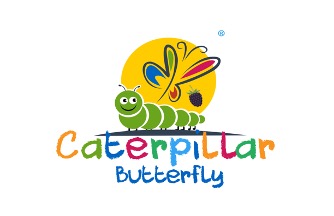
CATERPILLAR BUTTERFLY IS ON KICKSTARTER!
HELP US REACH OUR FUNDING GOAL…OCTOBER 4-31, 2021
Caterpillar-Butterfly is fascinated with storytelling and believes that everyone has a great story to tell.
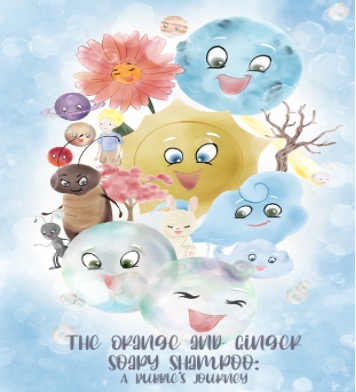
Our Kickstarter campaign is designed to raise funding to assist aspiring children’s book authors to realize their publishing dream. Our life’s mission is to amplify great stories.
WHY DOES CATERPILLAR BUTTERFLY NEED FUNDING?
“The Orange and Ginger Soapy Shampoo, A Bubble’s Journey” is a great series, our first big project. This is our baby.
The funds needed to thrive in a publishing business range from printing to marketing and advertising. Moreover, hiring the right illustrators for a project is critical.
We request your help in meeting our goals. Please visit our Kickstarter campaign. Read about us, donate, and spread the word. As one of our backers you’ll be part of the team that helps us
succeed and receive an awesome reward for your support. If you have a great story to tell, we may help you succeed too!
https://www.kickstarter.com/projects/catebutterfly/tall-short-shorts-a-doodles-games-and-music-for-busy-bodies?ref=6g617v&token=fc8261ce
= = =
LEVEL BEST BOOKS
https://www.levelbestbooks.us/
We are seeking crime fiction novels in the following categories: mystery, thriller, suspense, historical, traditional, and contemporary. We are also interested in nonfiction works related to the mystery and crime writing community, or collections of short stories or multi-authored anthologies. Both authors represented by agents and un-agented writers are welcome to submit.
PAGE STREET PUBLISHING
https://www.pagestreetpublishing.com/submission-guidelines
We publish young adult (YA) fiction (for ages 12 and up), in all genres, and a variety of nonfiction books in such categories as cooking, sports, science, nature, interior design, crafts, and parenting. We also publish picture books in all genres for ages 4-8 with particular focus on new talent, artist-led narratives, engaging story arcs, and visually driven concepts. We do not publish board books, early readers, chapter books, or middle grades at this time.
QUIRK
https://www.quirkbooks.com/page/submissions#
We have a creative tradition of coming up with offbeat, high-concept ideas and finding the right authors to execute them, which has led to some of the most successful books in our company's history and long-term partnerships with our authors. If you're interested in becoming the author of a Quirk-generated idea, you can send samples following the guidelines on the website. If an editor likes your sample, they'll reach out to you with details on how to audition for their
specific book idea. Current ideas are:
Idea #1: Quirk Books is seeking writers to audition for an adult mystery/thriller novel centered around multi-level marketing schemes. Writers with keen observation, biting humor, and a grittier sensibility are desired.
Idea #2: Quirk Books is seeking writers to audition for a YA mystery/thriller set in the world of social media influencer culture. Writers who tend towards dark humor and social commentary, and who are fascinated by social media and the influencer industry, are encouraged to apply.
Idea #3: Quirk Books is seeking writers to audition for a YA science fiction/mystery novel that takes place on a royal space station. Writers with an affinity for character-driven writing, vivid worldbuilding, complex plotting, and compelling queer romance are encouraged to apply. We are especially enthusiastic to see submissions from queer writers of color.
SPONSORS
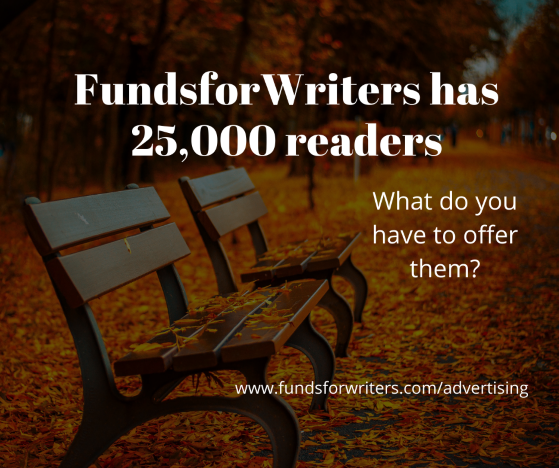
FINE PRINT
Please forward the newsletter in its entirety. To reprint any editorials, contact hope@fundsforwriters.com for permission. Please do not assume that acknowledgements listed in your publication is considered a valid right to publish.
C. Hope Clark
E-mail: hope@fundsforwriters.com
140-A Amicks Ferry Road #4
Chapin, SC 29036
http://www.fundsforwriters.com
Copyright 2000-2021, C. Hope Clark
ISSN: 1533-1326
**Note that FundsforWriters.com places paid advertising in this newsletter, ALL ads being related to writers and the business of writing, screened by FundsforWriters to make sure the information is suitable for writers and their endeavors to improve their careers. But the mailing list is not sold to third parties. You will not receive this newsletter without your
permission. It's physically impossible since recipients must opt-in, giving us permission to send the newsletter. If at any time you no longer with to receive the newsletter, click the UNSUBSCRIBE link at the bottom of each newsletter. We want you to enjoy this newsletter at your pleasure, not be forced to read anything you do not wish to receive. The website is not advertised using unsolicited messages by Aweber, affiliates or other third parties. Direct any complaints, suggestions, and
accolades to Hope Clark at hope@fundsforwriters.com. We are an anti-spam site.
|
|

